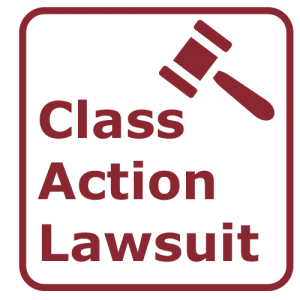Archer-Daniels-Midland Class Action Lawsuit: Your Legal Roadmap
Wiki Article
Demystifying Class Activity Claims: A Closer Look at Lawful Proceedings
Course action legal actions can be intricate and daunting, commonly shrouded in a shroud of enigma for those unfamiliar with the legal proceedings included. Gaining a much deeper understanding of these suits is essential, as they serve as an effective tool for individuals to seek justice and hold corporations answerable. In this discussion, we will certainly debunk course action suits, taking a more detailed take a look at the various aspects of the lawful process. From comprehending the criteria for course action eligibility to the role of class agents, and from the process of course qualification to the resolution of these claims, we will certainly unwind the complexities and shed light on the inner operations of this lawful mechanism. Allow's dive into the world of class action lawsuits and discover the complexities that lie underneath the surface area.Recognizing Class Action Claims
Comprehending Course Action Claim calls for a comprehensive assessment of the legal process included in cumulative litigation. Class activity legal actions are a kind of lawful action where a team of individuals with similar insurance claims or complaints join together to launch a suit versus a common defendant. This type of lawsuits allows people with minimal sources to collectively seek justice, as it integrates the stamina of several individual cases right into a single lawsuit.The process starts with the identification of a lead plaintiff or course representative that files the initial issue in behalf of the entire class. The court then determines whether the case meets the demands for course qualification, which consist of commonness, numerosity, typicality, and adequacy of depiction. If certified, the court alerts possible course participants, giving them a possibility to opt-out if they desire to seek their insurance claims independently.
When the class is licensed, the litigation proceeds through numerous phases, including discovery, motion technique, and, if required, test. The outcome of the lawsuit can cause a judgment or a settlement, which is binding on all class members unless they pick to opt-out. Class action lawsuits can encompass a vast range of lawful concerns, such as consumer protection, securities fraudulence, work discrimination, and environmental damage.
Understanding the nuances of course action legal actions is vital for both accuseds and complainants associated with collective litigation. It needs a comprehensive understanding of the lawful needs for certification, the rights and responsibilities of course participants, and the possible advantages and risks connected with safeguarding or seeking against class action insurance claims.
Identifying Course Activity Qualification
To determine whether a legal action certifies as a course activity lawsuit, specific requirements need to be satisfied. These standards are made to ensure that the instance can properly stand for the passions of a large team of individuals that have actually endured comparable injury or have actually been impacted by the exact same issue. The vital element in determining class action qualification is the visibility of an usual concern or problem that affects all potential course participants.First of all, a class action lawsuit calls for numerosity, which indicates there need to be a considerable number of potential course participants included. This guarantees that a course activity is an effective way to deal with the cases of a huge group of individuals, instead of having each individual file a specific legal action.
Secondly, there must be commonness amongst the insurance claims of the potential course participants. This implies that there must be an usual inquiry of legislation or fact that is main to the situation. If each potential class member's case is unassociated and special to the others, a class activity may not be suitable.

The Role of Class Rep
Course representatives play a vital duty in class activity legal actions by representing the rate of interests of the entire course. These people are chosen from within the class to work as the public face of the suit and are in charge of making choices in support of all class members. The function of course reps involves various obligations and obligations throughout the legal proceedings.
One of the key responsibilities of course reps is to give details and help to their fellow course members. They act as a factor of contact and interaction in between the course participants and the lawyers representing them. This consists of keeping the class participants notified about essential updates, addressing their questions, and addressing any kind of worries they may have.
Course agents also have the responsibility to actively participate in the lawsuits procedure (Future FinTech class action lawsuit). This Read Full Article involves functioning carefully with the attorneys to create lawful techniques, collecting proof, and offering statement if required. They should be proactively included in all aspects of the instance to make sure that the finest interests of the whole class are stood for
Moreover, class reps are accountable for authorizing settlements or various other resolutions reached in the lawsuit. They have to meticulously assess the terms of the negotiation and decide that remains in the very best rate of interest of the whole course. This decision-making process calls for cautious consideration and consultation with the class members.
The Refine of Class Certification
The process of licensing a course in a class activity legal action includes a thorough evaluation of details requirements to determine if the instance satisfies the required requirements for course certification. Course certification is a critical action in the lawsuits procedure as it identifies whether a lawsuit can proceed as a class activity, permitting a large team of individuals with similar cases to be represented collectively by one or a couple of individuals.To get course qualification, the complainant has to show that the recommended course satisfies specific requirements. Typicality needs that the cases or defenses of the class representatives are common of those of the Click This Link class. Competence of depiction makes certain that the course reps will relatively and effectively secure the rate of interests of the class.
If the suggested course fulfills the necessary needs,The court will scrutinize these criteria and the plaintiff's evidence to establish. The court might likewise take into consideration various other aspects, such as whether a class action is the premium method to resolve the disagreement and whether the class is completely natural.

Once the court gives course accreditation, the legal action can proceed as a class action, enabling the complainants to jointly seek relief and possibly obtain a judgment or settlement that benefits the entire class.
Handling Course Action Legal Actions
When class certification has actually been provided, the next action in fixing a course action claim is to browse the process of litigation or negotiation negotiations. Litigation refers to the legal procedures in court, where the complainant's lawyer presents evidence and arguments to sustain their claims, and the offender's attorney counters with their very own proof and arguments. This procedure can include various phases, such as pretrial movements, discovery, and test. Throughout pretrial activities, both celebrations may submit activities to dismiss the situation or limit the concerns in contention. Exploration permits each side to collect evidence and information from the various other celebration through methods such as record depositions, interrogatories, and requests. If the case continues to test, both events offer their case before a judge or jury, who will certainly after that make a decision the end result.On the various other hand, settlement arrangements include discussions between the parties to get to a mutually acceptable resolution without going to trial. Negotiation offers might be made at any stage of the lawsuits procedure, and if both celebrations agree, a settlement arrangement is reached.
Final Thought
In final thought, class action legal actions play a critical role in giving justice and settlement to huge teams of individuals that have actually been hurt by the same entity. By appointing and accrediting a class course reps, the lawful process ends up being much more efficient look at this web-site and easily accessible for the plaintiffs. Solving these legal actions can be a facility and lengthy procedure, however it is essential in holding firms liable for their activities and ensuring fair results for all influenced events.From comprehending the criteria for course activity eligibility to the role of class agents, and from the process of course accreditation to the resolution of these suits, we will certainly decipher the details and lost light on the inner functions of this legal mechanism. The key element in determining class activity qualification is the existence of a common concern or concern that impacts all possible class participants.
If each potential class member's case is unconnected and distinct to the others, a course action may not be suitable.
Class reps play a vital function in course action suits by representing the passions of the entire course.As soon as class accreditation has been given, the following step in resolving a course action legal action is to browse the process of litigation or negotiation arrangements.
Report this wiki page